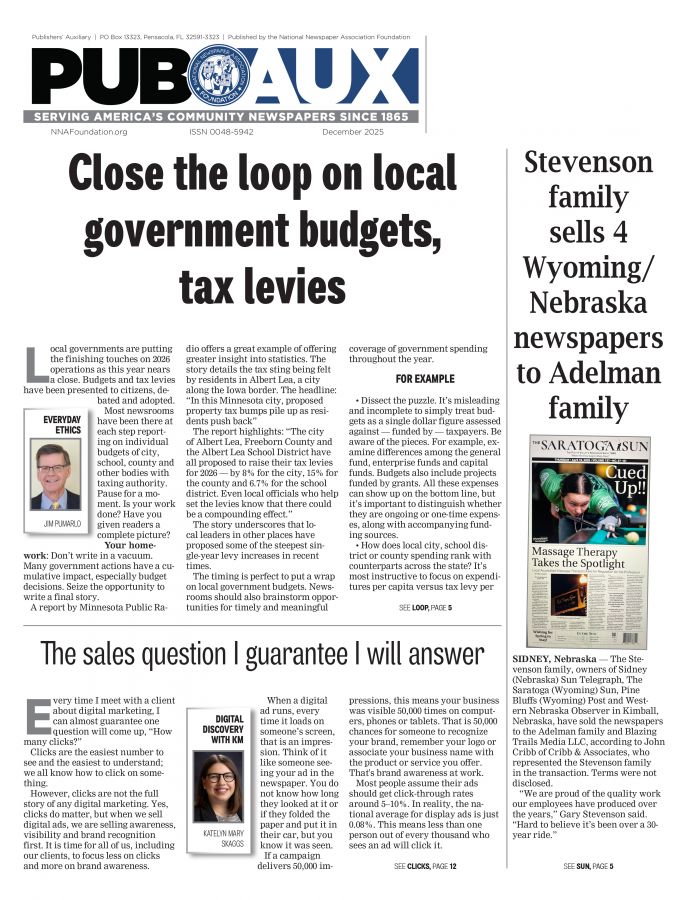Chinese, Kentucky community newspaper people find common ground at UK seminar
Feb 26, 2015
By Al Cross and Ginny Whitehouse
Special to Publishers’ Auxiliary
Community newspaper people from China and the U.S. found common ground, despite great differences in their environments, at the Second Sino-U.S. Community Media Seminar in Kentucky Jan. 8 and 9.
Presentations and discussions revealed that Chinese community papers share with their Kentucky counterparts the desire to tell stories of local people in the face of dramatic economic challenges, and a commitment to serve their communities.
“Community journalism requires a commitment to the people and the place,” said Bill Horner, publisher of Paxton Media Group’s Sanford (NC) Herald, who attended the first such seminar in Shanghai in 2013.
“I have seen a sense of commitment to that among community journalists in China,” Horner said, and seeing that helps American journalists “rediscover our own sense of commitment.”
The seminar was sponsored by the XinMin Evening News, Shanghai’s largest afternoon newspaper and publisher of many community editions, the Confucius Institute and the Institute for Rural Journalism and Community Issues at the University of Kentucky.
It brought from China 10 newspaper executives and journalists, six local-government officials and a Shanghai University professor, You You. She was the Institute’s visiting scholar in 2012-13. It also attracted 25 U.S. newspaper executives, University of Kentucky faculty and academics at other universities who are among the institute’s academic partners.
The day before the seminar, the Chinese and a few of the Americans visited the Lexington (KY) Herald-Leader and the Danville (KY) Advocate-Messenger to learn more about U.S. community newspapers.
The two days were a boost for Bian Haolan, editor-in-chief of the Bao’an Daily News, a 100,000-circulation community paper in Shenzen, next to Hong Kong. In the seminar discussions, through a translator, he noted a sharp decline in Chinese newspaper advertising in the last three years, but said his main takeaway from the seminar is a belief that traditional newspapers are here to stay.
Zhu Qi, associate town-chief of Chonggu in Shanghai, told the group that she was deeply impressed by the commitment to community that she saw in Danville and Lexington.
“We are in the pioneer stage of community journalism,” she said. “Our intention is to record the lives of the down-to-earth people who make up China’s development.”
Most community newspapers in China are published in cooperation with local governments, who see them as vehicles for official messaging and tools to create a greater sense of community at a time when Shanghai’s communities are flooded with immigrants from rural areas and the city’s population has exploded to 23 million.
In China, communities are purely administrative and geographic, You You said in her seminar presentation. “In Shanghai, there is a strong feeling of city but no sense of community.”
Jin Fei, assistant editor-in-chief of the XinMin Evening News’ community editions, said her staff has learned how to work within the government framework while always facing the dilemma of whether “to serve the readers or serve the government. … The approach we take is to encourage local government to make government affairs public and open.”
She said the government supports the paper’s efforts to monitor its work: The paper publishes the government’s annual plan of work and reports on how much of it has been accomplished.
Dr. Zixue Tai, a China native and professor in the UK School of Journalism and Telecommunications, said Americans should see community newspapers as some Chinese see them: what sociologists call a “third place”—informal, public gathering spaces outside home and work that contribute to civil society and democracy.
“The third place today can be realized mainly by community newspapers,” Tai said. “We have a lot of common ground” in community journalism.
Al Cross is director of the Institute for Rural Journalism and Community Issues at UK; Dr. Ginny Whitehouse is an associate professor of journalism at Eastern Kentucky University.







